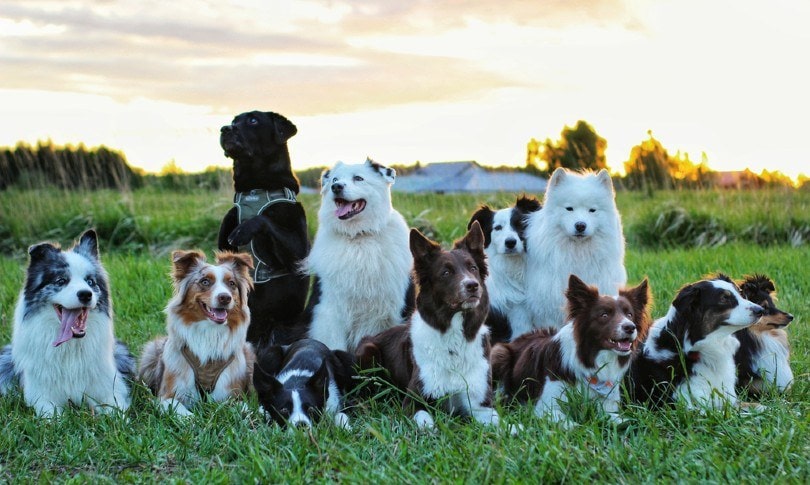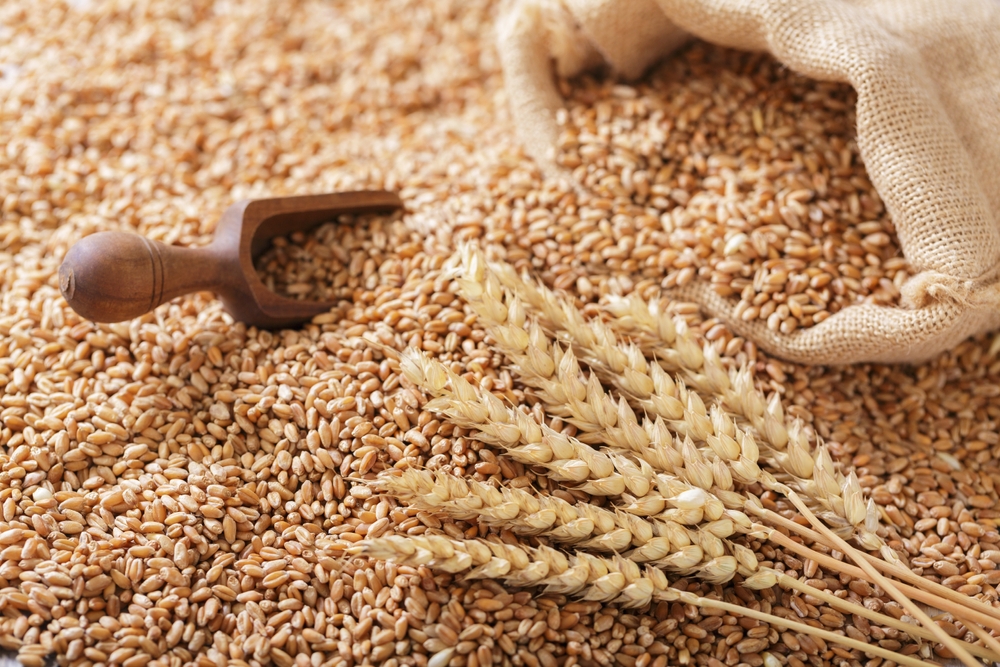Whether you have a young puppy just beginning its journey or a senior dog that is starting to slow down, it’s essential to find food that does more than just fill its tummy.
Sometimes we can only focus on the proper nutrients to give our dog a strong body and healthy coat, which of course, is super important! But we sometimes forget about ensuring that our dog has a diet that will benefit the health of its brain.
A Decrease in Brain Function
Before we begin, we’re going to address the decrease in your senior dog’s brain functions, particularly with memory issues. A real concern is a disease similar to dementia, known as canine cognitive dysfunction (CCD).
Dogs with CCD show brain inflammation and abnormal deposits of amyloid, a protein, in the brain. Dysfunction of the blood-brain barrier, a protective membrane, could also play a role in CCD, in the same way it does for Alzheimer’s.

Oxidation
The brain undergoes many metabolic processes that use oxygen and produce free radicals. The free radicals can then damage the proteins, cells, and DNA through oxidation.
Certain natural compounds called antioxidants can neutralize these free radicals, preventing the damage they do to the brain and maintaining a healthy balance. Antioxidants provide the best nutrients that help decrease the free radicals and oxidation reactions in the brain tissues (hence, antioxidants), which supports healthy brain function.
Oxidative stress occurs when the free radicals outnumber the antioxidant ability of the body. Interestingly, oxidative stress is induced in times of stress and anxiety.
The Brain Food for All Life Stages
The following are foods and supplements that are all great for your dog’s brain health because they are full of nutrients and are safe for your dog to eat. Dogs of all life stages will benefit from them.
Brain Foods for Dogs

Proper nutrition for puppies and young dogs is vital since it will support their growing bodies, and of course, their brain health. It can also set them up for protection against conditions as they grow older.
In order to support dogs in the prime of their life, they do need antioxidants on a daily basis. It will ensure their body and brain health is kept at an optimum level.
Geriatric dogs will truly benefit from antioxidants and other nutrients. It can improve their brain function despite the onset of CCD. They need an extra boost for their immune systems as well as to help maintain brain health, and these foods should help.
Antioxidants
These important nutrients function as antioxidants and support healthy brain function.
- Vitamin C:Vitamin C can be found in a number of fresh fruits and vegetables such as broccoli, kiwi, cantaloupe, and strawberries. Vitamin C is not an essential nutrient for dogs as they can make their own, but vitamin C in the diet can give them an antioxidant boost.
- Vitamin E: It can be found in Atlantic salmon, kiwi, mango, red pepper, and broccoli, all of which are good treats for puppies.
- Selenium:You can find selenium in whole grains, eggs, poultry, fish, and meat.
- Beta Carotene:The obvious source is carrots, but beta-carotene is also found in broccoli, sweet potato, pumpkin, spinach, and beef liver.
- Polyphenols: These are antioxidant compounds mainly found in plants. Blueberries, pomegranates, and cranberries are good sources of polyphenols.
Other Nutrients
- DHA: DHA, or docosahexaenoic acid, is an omega-3 fatty acid that is important in the developing puppy’s nervous system. A deficiency can lead to nervous system problems like polyneuropathy and reduced learning ability in dogs. Fish oils and fish like sardines, anchovies, and salmon are great sources of DHA.
- MCT: MCTs are medium-chain triglycerides, a type of fat that provides an alternative energy source to the brain. It works best in older dogs since they have less capacity to use glucose for energy in the brain. Choosing a food higher in MCTs is the best way to offer these nutrients.
Most high-quality dog food should have these nutrients, but if you’re considering adding any extra as a supplement, be sure to speak to your vet first to ensure it’s right for your dog.
If you need to speak with a vet but can’t get to one, head over to PangoVet. It’s an online service where you can talk to a vet online and get the personalized advice you need for your pet — all at an affordable price!
Food Sources

Antioxidants occur naturally in a variety of plants, but of course, there are a number of fruit and vegetables that aren’t good for dogs. So, you need to find food full of antioxidants that are also compatible with a dog’s diet.
Consult with your veterinarian before you start adding new food to your dog’s daily meals. Additionally, when adding new food to your dog’s diet, be sure to do so very slowly.
- Yellow squash
- Sweet potatoes
- Carrots
- Spinach
- Green beans
- Kale
- Blackberries
- Blueberries
- Strawberries
- Raspberries
- Mangos
You could also consider purchasing commercial food with brain-supporting nutrition for an adult or senior dog. Hill’s Prescription Diet b/d Brain Aging contains high levels of omega-3 fatty acids and antioxidants. Purina Pro Plan Veterinary Diets Neurocare Dry Dog Food antioxidants, MCTs, and omega-3 fatty acids.
Again, speak to your vet before changing your dog’s meals and adding any new food.
Other Ways to Exercise Your Dog’s Brain
Other than feeding your dog or adding supplements that are rich in antioxidants, there are other methods you can use to improve your dog’s brain health.
- Physical Exercise:Even if your dog has slowed down, you should still make a point of exercising him every day. Don’t push them too far if he has issues with arthritis or any other physical problems. Just take them for gentle walks at their own pace.
- Mental Exercise:Playing with your dog is still just as important now as when it was a puppy. Offer them a puzzle game as well as playing with them—hide and seek, fetch, anything that will engage them physically and mentally.
Just be sure to keep to a routine as this can make your dog feel more confident and comfortable.
Conclusion
Proper nutrition combined with physical and mental exercises should help your dog keep their cognitive functions healthier for longer and benefit their health in many ways. Antioxidants are clearly essential for brain health and can be included in quality dog foods and supplemented as treats in the diet. Speak to your vet about adding new foods and supplements to your dog’s diet.
We all really want to spend as much time as possible with our dogs, and we certainly want them to have sharp minds for their entire lives. We hope these suggestions will help you both enjoy your time together from puppy to the golden years.
Other Dog Reads:
Featured Image Credit: Karsten Winegeart, Unsplash













